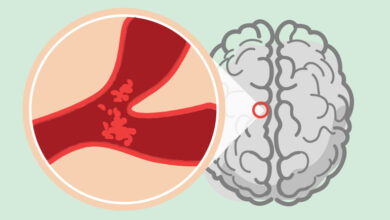Facts of Diabetes: Understanding, Symptoms, Causes, Prevention and Treatment
There are many factors that cause diabetes that make a person suffer from this disease. The following are some of the causes of diabetes.
1. Type 1 Diabetes
In the case of type 1 diabetes, people will be more susceptible to type 1 diabetes if there is a history of type 1 diabetes. This means that genetic factors play an important role in the causes of type 1 diabetes.
Type 1 diabetes affects more white people than other races and most often attacks ages 4 – 7 years and 10-14 years.
Besides geographic factors, where people living in areas away from the equator, such as in Finland and Sardinia, are most affected by type 1 diabetes. This is due to a lack of vitamin D, which can trigger autoimmune diseases.
2. Type 2 Diabetes
In type 2 diabetes, the causes are more diverse and can go undetected for years. People will be more susceptible to type 2 diabetes if they have the following risk factors.
The first is overweight or obese and has a family history of type 2 diabetes, and is less active, meaning physical activity will help control weight, burn glucose as energy, and make the cells of the body more sensitive to insulin.
The next factor is age. In type 2 diabetes, the higher the risk of diabetes is in line with increasing age and have high blood pressure (hypertension). Jam, Blacks, Hispanics, American Indians, and Asian-Americans, have higher rates of sufferers than white people. The last one is having good cholesterol levels but high triglyceride levels.
Prevention of Diabetes
As we know Millions of people in the world are diagnosed with diabetes because of unhealthy lifestyles and lack of exercise. Before it’s too late, here are some ways to prevent diabetes.
1. Lose weight
Be careful if you include people who have excess weight or even obesity. Citing WebMD, obesity is the number one risk factor for type 2 diabetes. This means that people with excess weight have a greater potential for diabetes. Excess weight can increase a person’s risk of developing diabetes. So, make sure that you can lose weight and keep it normal.
2. Sports routine
Exercising every day helps maintain a healthy weight, lowers blood sugar levels and increases your sensitivity to insulin. Besides helping to burn fat, exercise also helps make body cells more sensitive to insulin.
As much as possible take time to exercise lightly for at least 30 minutes a day to try to prevent diabetes and reduce blood sugar. There are many types of physical activity that have been shown to reduce insulin resistance in overweight adults and those who are prediabetes. Starting from running, swimming, cycling, basketball, badminton, lifting weights, or just relaxing. The key is one, make your body move every day.
3. Healthy Eating
If you find it difficult to switch from white rice to another alternative carbohydrate, try starting to trim your portion of rice little by little. For example by using a smaller plate. Eating on a small plate makes you unconsciously have to reduce the portion of eating less than usual.
In addition, you still have to get used to eating 3-4 servings of vegetables for one meal and 2-3 servings of fruit in one day.
4. Drink water
Experts believe that in addition to preventing dehydration, water is the best drink to prevent diabetes.
Water does not contain sugar so it will not raise your blood sugar levels. Conversely, drinking water actually makes the body’s cells respond to insulin well. Water is also a powerful way for you not to consume too many sweet drinks.
5. Reduce Sugar
Sweet foods and drinks are tempting. However, there have been very many medical studies that prove that consuming excess sugar and refined carbohydrates can increase the risk of diabetes.
Therefore, reducing or even avoiding sweet foods and drinks is an effective way to prevent diabetes.
6. Avoid fatty foods
Junk food and the foods you usually buy on the road are generally high in saturated fats, which can increase bad cholesterol levels in the body. This in turn can also affect blood sugar levels in the body. So, avoid junk food and other fatty foods.
7. Eat enough vegetables
Vegetables are a good source of vitamins, minerals and fiber for the body. Thus, multiply the consumption of vegetables every day. They will help you prevent diabetes.
8. Get enough sleep
Getting enough sleep, at least six hours of sleep at night is very important to prevent diabetes. Lack of sleep can increase the hormone cortisol in the body, which can increase insulin levels and cause blood sugar imbalances.
Treatment of Diabetes
In type 1 diabetes, patients will need insulin therapy to regulate blood sugar daily. In addition, some type 2 diabetes patients are also advised to undergo insulin therapy to regulate blood sugar. This additional insulin will be given by injection, not in the form of a drinking drug. The doctor will set the type and dosage of insulin used, and tell how to inject it.
In cases of severe type 1 diabetes, doctors can recommend a pancreatic transplant to replace a damaged pancreas. Type 1 diabetes patients who have successfully undergone such surgery no longer need insulin therapy, but must take immunosuppressive drugs regularly.
In type 2 diabetes patients, doctors will prescribe drugs, one of which is metformin, a drinking drug that serves to reduce glucose production from the liver. In addition, other diabetes drugs that work by keeping glucose levels in the blood from being too high after the patient eats, can also be given.
Diabetic patients must control their blood sugar in a disciplined manner through a healthy diet so that blood sugar does not increase until above normal. In addition to controlling glucose levels, patients with this condition will also be scheduled to undergo an HbA1C test to monitor blood sugar levels over the past 2-3 months.
The choice of a healthy lifestyle remains an important point as a way to prevent and treat diabetes. Do not forget to always check your blood sugar to the doctor at least once a year to anticipate diabetes.




